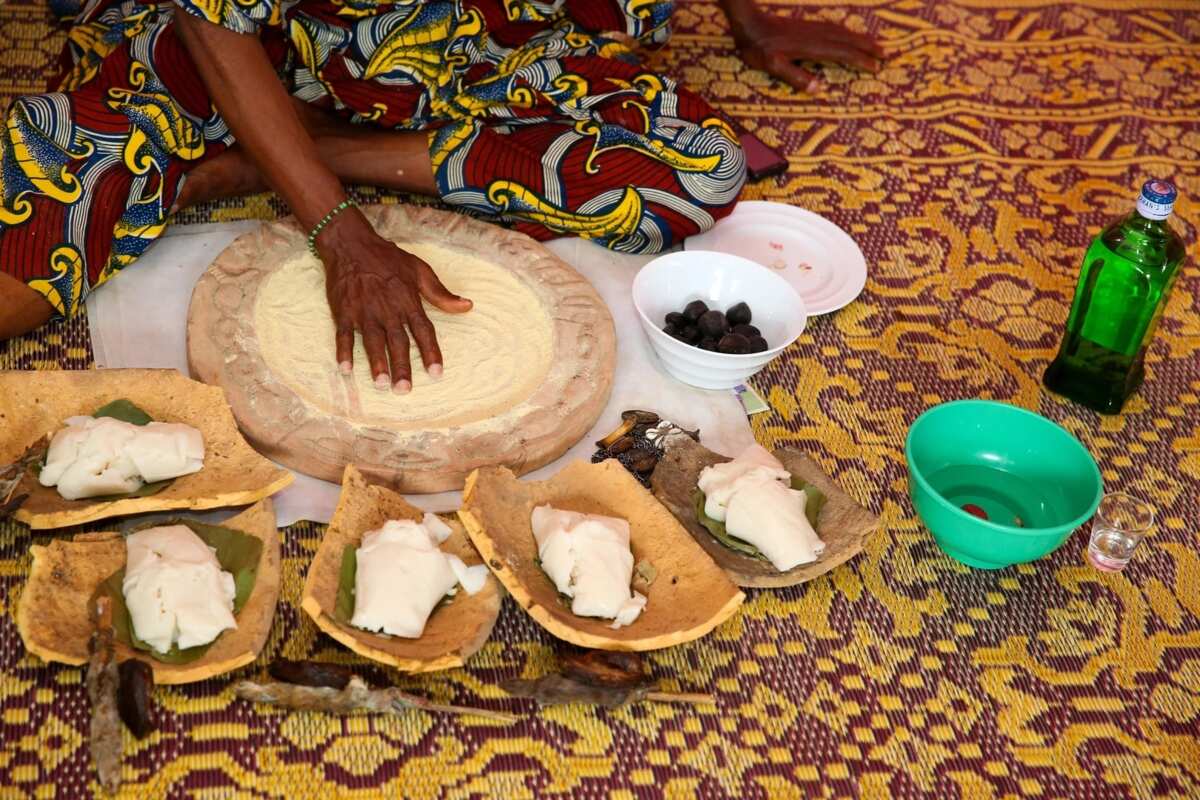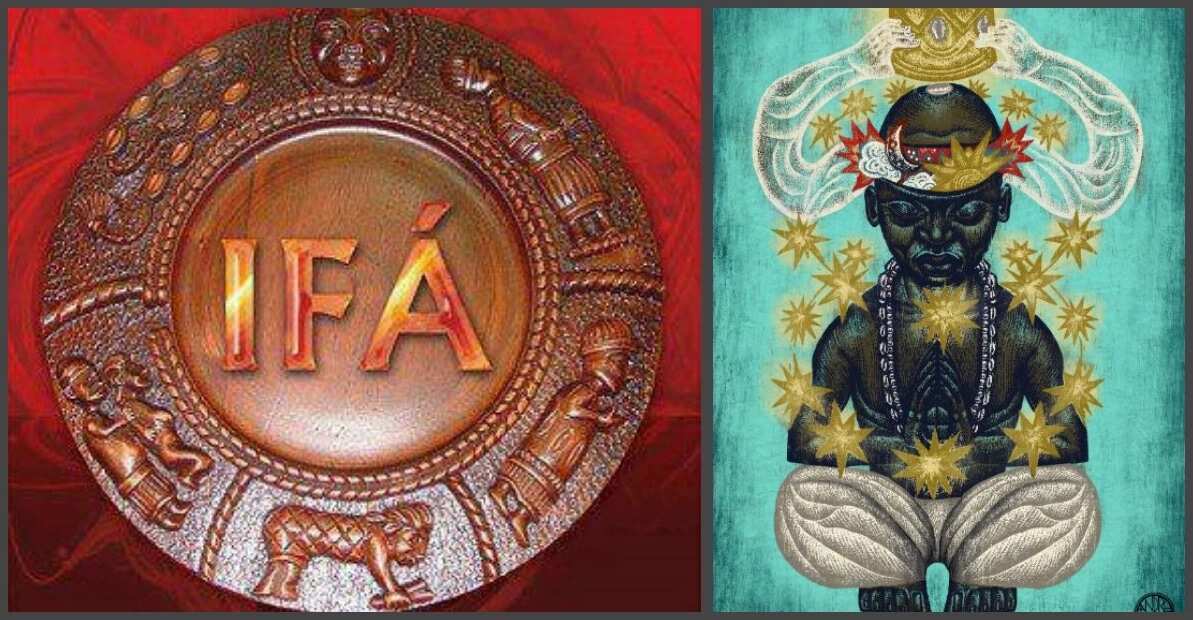The Enigmatic World Of Ifa Religion
Ifa religion is a profound spiritual system rooted in the Yoruba culture of Nigeria. This ancient belief system encompasses intricate rituals, divination practices, and a rich pantheon of deities that guide adherents in their everyday lives. Ifa is not merely a religion; it is a way of life that emphasizes the interconnectedness of the physical and spiritual worlds. Through its teachings, followers of Ifa seek to understand their destinies and navigate the complexities of existence.
The foundation of Ifa religion lies in the wisdom of its diviners, known as Babalawos, who serve as intermediaries between humans and the divine. Utilizing the sacred Ifa texts, Babalawos interpret the messages from the Orishas (deities) and provide guidance to those seeking answers to life's questions. This practice is not only about predicting the future but also about fostering a deeper connection with the spiritual realm, allowing individuals to make informed choices that align with their purpose.
As the world becomes more interconnected, the Ifa religion is gaining attention beyond its traditional roots. Many people from diverse backgrounds are drawn to its teachings, finding solace and empowerment in its practices. This growing interest raises questions about the true nature of Ifa, its relevance in contemporary society, and how it can coexist with other belief systems. In this article, we will explore the various facets of Ifa religion, its significance, practices, and the broader implications of its teachings.
What Are the Core Beliefs of Ifa Religion?
Ifa religion is built upon several key beliefs that form the foundation of its spiritual framework. Understanding these core beliefs is essential for anyone interested in exploring this ancient tradition.
- The Concept of Destiny: Central to Ifa belief is the idea that every individual has a unique destiny, known as "Ori." This destiny is believed to be determined before birth, and it guides one's life journey.
- Interconnectedness of All Beings: Ifa teaches that all living beings are interconnected. This belief fosters a sense of community, respect for nature, and a commitment to the well-being of others.
- Reverence for Orishas: The Orishas are powerful deities that represent various aspects of life and nature. Each Orisha has its own attributes, and followers seek their guidance through rituals and offerings.
- The Importance of Divination: Divination is a crucial practice in Ifa religion. It provides insights into one's destiny, helps to resolve conflicts, and offers guidance in decision-making.
How Does Ifa Divination Work?
Ifa divination is a complex process that involves the interpretation of sacred texts and symbols. The most common method used is called "Ifa divination," performed by a Babalawo. Here’s how it works:
What Role Do Rituals Play in Ifa Religion?
Rituals are integral to Ifa religion, serving as a means of connecting with the divine and honoring the Orishas. These rituals can vary in complexity and purpose, ranging from simple prayers to elaborate ceremonies. Here are some key aspects of rituals in Ifa:
- Offerings: Followers make offerings of food, drink, and other items to the Orishas as a way to show gratitude and seek blessings.
- Festivals: Annual festivals celebrate the Orishas and involve communal gatherings, music, dance, and traditional performances.
- Initiation Ceremonies: New practitioners may undergo initiation rituals to formally enter the Ifa community and receive guidance from experienced diviners.
Who Are the Key Figures in Ifa Religion?
Ifa religion is rich in history and tradition, with numerous key figures who have played a significant role in its development. Understanding these figures helps illuminate the depth and complexity of the belief system.
| Name | Role | Contributions |
|---|---|---|
| Orunmila | God of Wisdom | Central figure in Ifa divination and the custodian of knowledge. |
| Babalawo | Diviner | Intermediary between humans and the Orishas; provides guidance through divination. |
| Ogun | Orisha of Iron and War | Represents strength and is invoked for protection and success in endeavors. |
| Yemoja | Mother of Waters | Goddess of fertility and the sea; symbolizes motherhood and nurturing. |
How Can One Practice Ifa Religion Today?
Practicing Ifa religion today requires a commitment to understanding its teachings and engaging in its rituals. Here are some steps for those interested in exploring Ifa:
What Are the Challenges Facing Ifa Religion Today?
As Ifa religion gains popularity outside its traditional roots, it faces several challenges, including:
- Misunderstanding: Many people may misinterpret or oversimplify the complexities of Ifa, leading to misconceptions.
- Cultural Appropriation: There is a risk of cultural appropriation, where individuals adopt Ifa practices without understanding their significance.
- Preservation of Tradition: As modernization continues, there is a challenge in preserving the authentic practices and rituals of Ifa religion.
Conclusion: The Relevance of Ifa Religion in Today's World
Ifa religion offers profound insights into the human experience, emphasizing the importance of destiny, interconnectedness, and community. As it continues to evolve and gain recognition worldwide, its teachings provide valuable guidance for navigating the complexities of modern life. Embracing these ancient wisdoms can foster a deeper understanding of oneself and one’s place in the universe, making Ifa religion a relevant and enlightening path for many. Whether through divination, rituals, or community engagement, Ifa invites individuals to explore the mysteries of life and their unique destinies.
Nigeria Mansions: A Glimpse Into Luxury Living
Twi-Video.n: A Gateway To Engaging Visual Content
Unveiling The Mystery Of David Choe's Partner



ncG1vNJzZmiqn5i4o77InZ6emqKqtq%2B%2FjaipoGeXobyjrcutqZqclZrFsa3NnaqsZ5mbrm6%2BxKWgoKGfo3upwMyl
